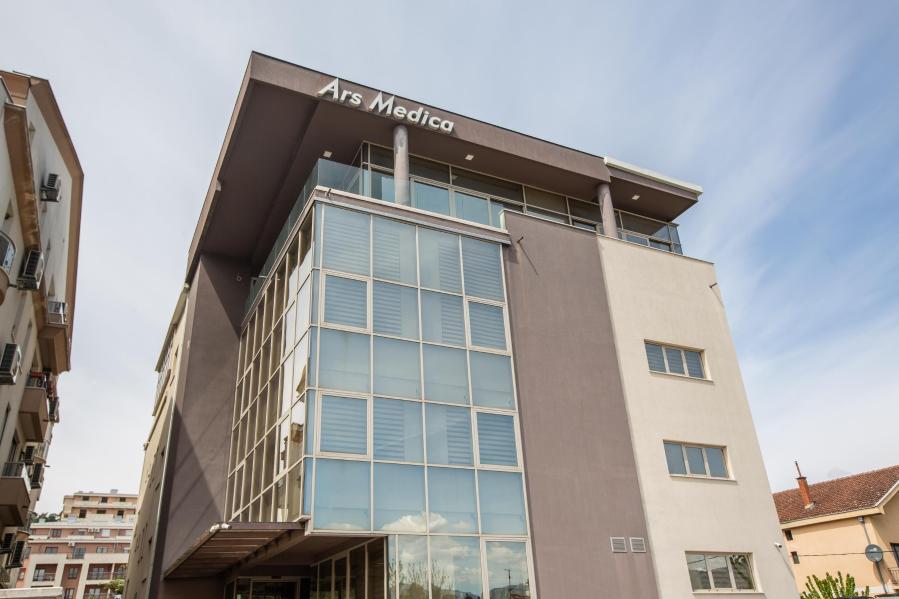For Montenegro SMEs COVID-19 recovery and long-term challenges like climate change get a boost from EU financing
The economic impact of COVID-19 has been severe for small businesses everywhere. In Montenegro, financial help from the European Investment Bank, the EU bank, made a big difference.
“It was particularly important for retaining the liquidity of economy and jobs,” says Irena Radović, chief executive of the Investment and Development Fund of Montenegro, which teamed up with the European Investment Bank to support small and medium-sized enterprises (SMEs). “It was also crucial for development projects that contribute to the creation of new economic value and the recovery of our economy in the post-pandemic period.”
Favourable credit lines during the pandemic
During the pandemic, the European Investment Bank and the Montenegrin fund helped the country’s SMEs with €150 million through the Team Europe initiative. THis enabled small companies to access financing under favourable conditions to address their liquidity and investment needs.
“We are creating the conditions for faster growth of the private sector and a transformation towards an inclusive, sustainable and digital economy,” says Lilyana Pavlova, the European Investment Bank vice president responsible for Montenegro.
“Our goal is to accelerate Montenegrin economic and social recovery and growth.” she adds. “The next step is to deliver innovative financing for the creation of inclusive employment opportunities, especially for youth, women and representatives of vulnerable groups.”
Spurring the development of companies across sectors
Over the last decade, the European Investment Bank has supported the development of many Montenegrin small and medium-sized companies, with credit lines channelled through local commercial banks and one of its longest-standing partner in the Western Balkans region, the Investment and Development Fund.
Seven years ago, the construction of Podgorica’s Ars Medica Hospital was financed with European Investment Bank funds. It was the first privately owned medical institution in the capital city.
The financing was at the best rates available and the involvement of the EU bank gave the hospital a sense of security that was unavailable in the commercial banking sector, says Milija Šuković, the hospital’s executive director. “Believe me, having done this job for almost 34 years, I know very well that when you stand for professionalism and an honest relationship, good results follow,” he says.

Reliable partner for business development
Another beneficiary of European Investment Bank funds, Doding, has been making custom-made furniture for almost three decades. It has grown from a small family business to an enterprise with several dozen employees. The EU bank’s funds come in very handy, when economic times are tough.
“This is the right way to support production and to invest,” says Branko Pejović, Doding’s executive director, “because we feel that someone is supporting us to develop further.”
The serious procedures of the European Investment Bank provide serious advantages. Take the example of Cungu, a wholesaler of professional equipment for hotels and restaurants, homes and gardens, with ten retail outlets in Montenegro.
“Funds from the credit lines of the EIB constitute an important segment of our business,” says Boris Bauković, Cungu’s manager. “The interest rates are more favourable compared to traditional bank loans.”
The company used funds from its most recent loan for the construction of a new facility in Podgorica, working capital and the expansion of its product range.
Decarbonisation follows COVID-19 support in Montenegro
Montenegrin small business can continue to rely on the European Investment Bank for support on their path to a modern, digital, green and circular economy. The Bank’s presence is now enhanced through its new branch EIB Global.
The proof of this is the €100 million deal with the Investment Development Fund for climate-friendly and energy-efficient investments by local SMEs signed since 2021. It unlocks a new source of much-needed climate and environmental sustainability financing to fast-track the decarbonisation of the local economy and its decoupling from fossil fuels.
“Combined with the EU Delegation’s assistance programs, this preferential loan will enable local companies to create much-needed jobs and to add value to the Montenegrin economy,” says Oana-Cristina Popa, EU ambassador to Montenegro. “Better access to finance, provided under this loan agreement, is essential for small and medium-sized enterprises, which are the backbone of Montenegro's economy.”
